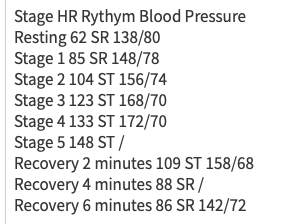audreyh1
Give me a museum and I'll fill it. (Picasso) Give me a forum ...
I'm surprised it's not higher than 88%. It seems like everyone is always eating unhealthy food, going out to restaurants/fast food to eat, getting tator tots with gravy or biscuits and gravy for breakfast. Even if they get eggs, they usually get a a couple pieces of toast to go with it.
12% is the number for adult Americans with optimal metabolic health - that is meeting all this 5 criteria. 88% not meetings all criteria seems pretty high to me considering that it includes young adults.
Metabolic Syndrome a.k.a Insulin resistance has traditionally been diagnosed if you fail to meet 3 of the criteria. Although if you develop type 2 diabetes or fatty liver you have clearly had insulin resistance for a while.

